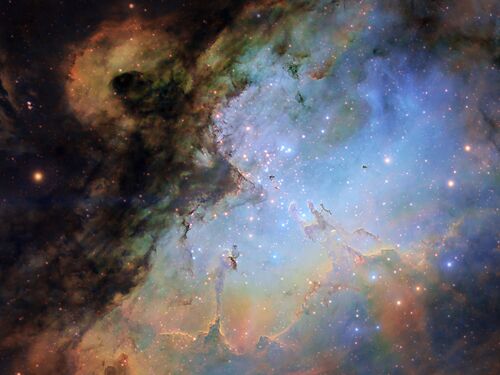Completed
This study will describe how international and national planetary protection policy has been formulated and adopted and identify associated lessons to inform future policy development.
Featured publication
Consensus
·2018
Protecting Earth's environment and other solar system bodies from harmful contamination has been an important principle throughout the history of space exploration. For decades, the scientific, political, and economic conditions of space exploration converged in ways that contributed to effective de...
View details
Description
The National Academies of Sciences, Engineering, and Medicine will appoint an ad hoc committee to carry out a study that will describe how international and national planetary protection policy has been formulated and adopted and identify associated lessons to inform future policy development. Specifically, the committee will assess the current state of planetary protection policy development, and the extent to which the current policy-making process is responsive to the present state of science, technology, and engineering, including biological science, as well as the exploration interests of state and non-state actors. The committee's review will lead to recommendations on how to assure the planetary protection policy process is supportive of future scientific and societal interests, as well as spaceflight missions.
It is suggested that the committee organize its review around three themes:
- Historical context and the current policy development process--including a working definition of planetary protection and its goals;
- Key factors in the current policy development process; and
- The future of the policy development process.
Historical Context and the Current Policy Development Process--including a working definition of planetary protection and its goals
In addressing this theme, the committee should consider the following questions and formulate lessons learned where appropriate:
- How has the planetary protection policy development process evolved over the course of lunar and planetary exploration? What approaches to planetary protection policy development were used in the Apollo and Viking eras of solar system exploration, and subsequent Mars exploration? What factors informed and drove those choices?
- What worthwhile lessons can policymakers take from the history of planetary protection policy development in looking toward future exploration and sample return missions?
- Who are the actors involved in the present-day planetary protection policy development process? What are the respective roles and responsibilities of international organizations, national organizations and national space agencies (including agencies' planetary protection officers), advisory committees, and others in the process?
- What scientific, technical, philosophical, and/or ethical assumptions and values about the importance of avoiding forward contamination of extraterrestrial planetary environments are prioritized in the current planetary protection policy development process?
- What scientific, technical, philosophical, and ethical assumptions and values about the importance of protecting Earth and its environment (“backward contamination”) are prioritized in the current planetary protection policy development process?
- How does the current process take into account new scientific and technical knowledge?
- How does the state of scientific understanding of planetary environments and their ability to harbor life inform the current planetary protection policy development process? What scientific knowledge or exploration interests are not taken into account?
- How does the current planetary protection policy development process balance interest in acquiring scientific knowledge of planetary environments to inform future scientific studies, exploration, and planetary protection policy choices with the interest in protecting those environments in the here-and-now?
Key Factors in the Current Policy Development Process
In addressing this theme, the committee should consider the following questions and formulate recommendations as appropriate:
- To what extent does the current process consider the interests of state and non-state actors in exploring planetary environments, including obligations under Article VI of the Outer Space Treaty?
- How does the current process reconcile uncertainties in knowledge, differences between scientific and other exploration interests, as well as potentially competing interests?
- What are the barriers, or challenges, that inhibit the process of effective planetary protection policy development?
The Future of the Policy Development Process
Looking at both historical and contemporary approaches to planetary protection policy development, the committee should make recommendations about the future of planetary protection policy process development in relation to these questions:
- How could the planetary protection policy development process be made more adaptable to the evolving landscape of knowledge about and myriad interests in planetary environments?
- How can a planetary protection regulatory environment in the U.S. government be established and evolve to keep pace with non-governmental spacefaring entities?
- How does a future process evaluate the state of the art and what technologies are required to ensure compliance with planetary protection policy for future missions?
- What risk assessment and/or quality control principles should be applied to ensure that a future process takes into account our understanding of the capabilities of Earth organisms and the potential for extraterrestrial life to be encountered by planetary missions?
Contributors
Committee
Chair
Member
Member
Member
Member
Member
Member
Member
Member
Member
Member
Member
Member
Member
Member
Committee Membership Roster Comments
Sponsors
NASA
Staff
David Smith
Lead
Mia Brown
Andrea Rebholz
More like this
Discover
Events
Right Now & Next Up
Stay in the loop with can’t-miss sessions, live events, and activities happening over the next two days.
NAS Building Guided Tours Available!
Participate in a one-hour guided tour of the historic National Academy of Sciences building, highlighting its distinctive architecture, renowned artwork, and the intersection of art, science, and culture.
